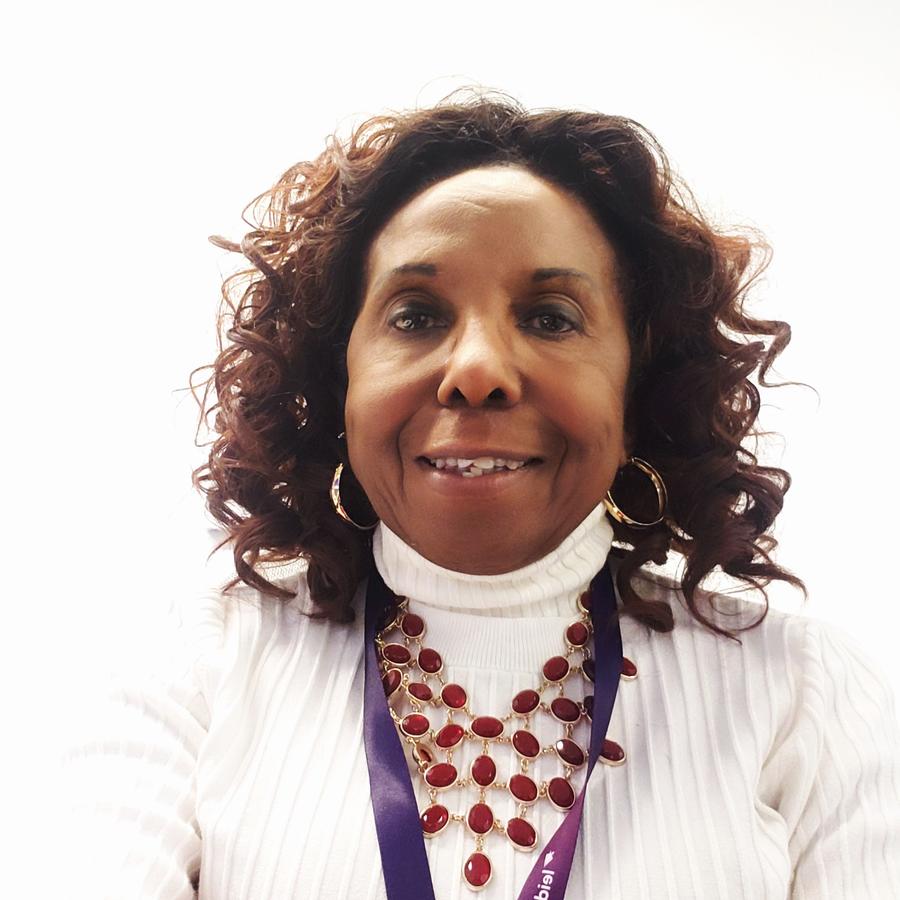Desryn Duncan on overcoming bias in her successful 30-year software career (and counting)
Desryn Duncan has been defying expectations since she was a teenager.
A male classmate in her home country of Guyana told her not to take the national mathematics examination after high school because she was a girl, “and girls can’t pass engineering in college anyway.” This was in the late 1970s, she says, and was the majority opinion at the time.
But Desryn took the exam—and got one of the highest scores in the country. Her math performance earned her a scholarship to study electrical engineering at a Canadian university. Once there, though, her college professor immediately advised her to switch majors. After all, he’d reasoned, she was the only Black woman studying engineering and he’d never before seen a Black student graduate with an engineering degree.
Her response: “Failure is not an option.”
“Fast forward to my junior year, and I was elected by my class as president of the engineering society,” Desryn says.
Desryn’s career path—and why she loves her job
Once she’d graduated with her engineering degree, Desryn returned to Guyana to work for four years per the requirements of her scholarship.
“After those years, an American company with a small office in Guyana recruited me to work in the U.S.,” Desryn says. While working full-time in America, she also earned her master’s degree in computer engineering. Following her 20-year career in the private sector, Desryn had risen to the role of technical manager for a half-billion-dollar military project and decided to move into public service, working for the Internal Revenue Service.
Upon completion of a major project, Desryn received a promotion to the Senior Executive Service by the Office of Personnel Management. Now she works on contract with the IRS as an IT program manager and serves Leidos as a solution architect for IRS proposals.
“The solutions designed by Leidos need to be flexible to accommodate changing tax laws and align with the overall architecture of the IRS. Plus, these projects must be implemented without affecting annual filing season tasks,” Desryn says, explaining why her insights into the architecture and culture of the IRS offer valuable guidance for Leidos proposals.
“My job demands that I interact with several people, both from Leidos and the customer, every day. I love that collaboration—and I love a challenge.”
Modernizing a system that was developed in the 1960s—while maintaining active use of it—is definitely a challenge, Desryn says, but it’s one she loves tackling with her team.
“The people I work with are talented and do not give up. They embody my favorite phrase from college: ‘failure is not an option,’” Desryn says. “I enjoy public service and hope to continue working with the IRS on updating technology to give taxpayers more digital services, while keeping the public’s tax data secure.”
Desryn’s career advice
Looking back on her own experiences and considering what she sees as most valuable in today’s work environment, Desryn offers the following advice to those pursuing software careers today:
-
Build trust by being honest, conscientious, and kind. “People must be able to trust you and to rely on you, so treat others the way you would like to be treated. You cannot do everything on your own, especially as you rise higher in your career. You’ll increasingly need to rely on your team to do their part, and a team that trusts each other performs brilliantly. Build that trust by being honest, having a sense of integrity, and establishing a rapport with your team.”
-
Understand the value of diversity. “The U.S. is a diverse country, and the world is a diverse place. If we are to interact in a positive way with others, we need to understand them. If we need to gain customers from other countries or cultures, we need to understand them.”
-
Foster inclusion. “Be open to listening to opinions that differ from yours. When we are open to giving everyone the same respect, by listening to them and giving them equal time to share their perspective and opinions, we can then tap into the value of our diversity.”
-
Don’t underestimate the value of certifications. “Certifications are important in this industry. They help hiring managers verify that a person has the right baseline knowledge in their specific area.”
“Besides basic skills and experience, employers are looking for a willingness to learn, an ability to get along with others, and a good work attitude,” Desryn says.
If you’re interested in software jobs or other career opportunities with Leidos, browse our open positions. We look forward to your application.




